Disclosure: Meeple Mountain received a free copy of this product in exchange for an honest, unbiased review. This review is not intended to be an endorsement.
Corrosion, designed by Stefan Bauer and published in the US by Capstone Games (Ark Nova, Clinic: Deluxe Edition, Iberian Gauge), was on my radar from the jump; I’ve generally enjoyed everything in their catalog.
But then the game was released and…nothing. No buzz. Not a lot of reviews, positive nor negative. None of the friends in my network pre-ordered the game.
When I finally did lay eyeballs on it, Corrosion had an admittedly drab look to it. The characters didn’t really shine, the backstory felt tacked on, the components were only so-so. (Well, save for those add-on metal gear tokens, which ARE really nice.)
Fast forward to the present. I am exploring every game in the Capstone catalog that Meeple Mountain has not reviewed, and Corrosion was on the list. After a few plays, I am really enjoying the exploration of this engine.
I also think I know why the game ultimately didn’t register with “the people.”
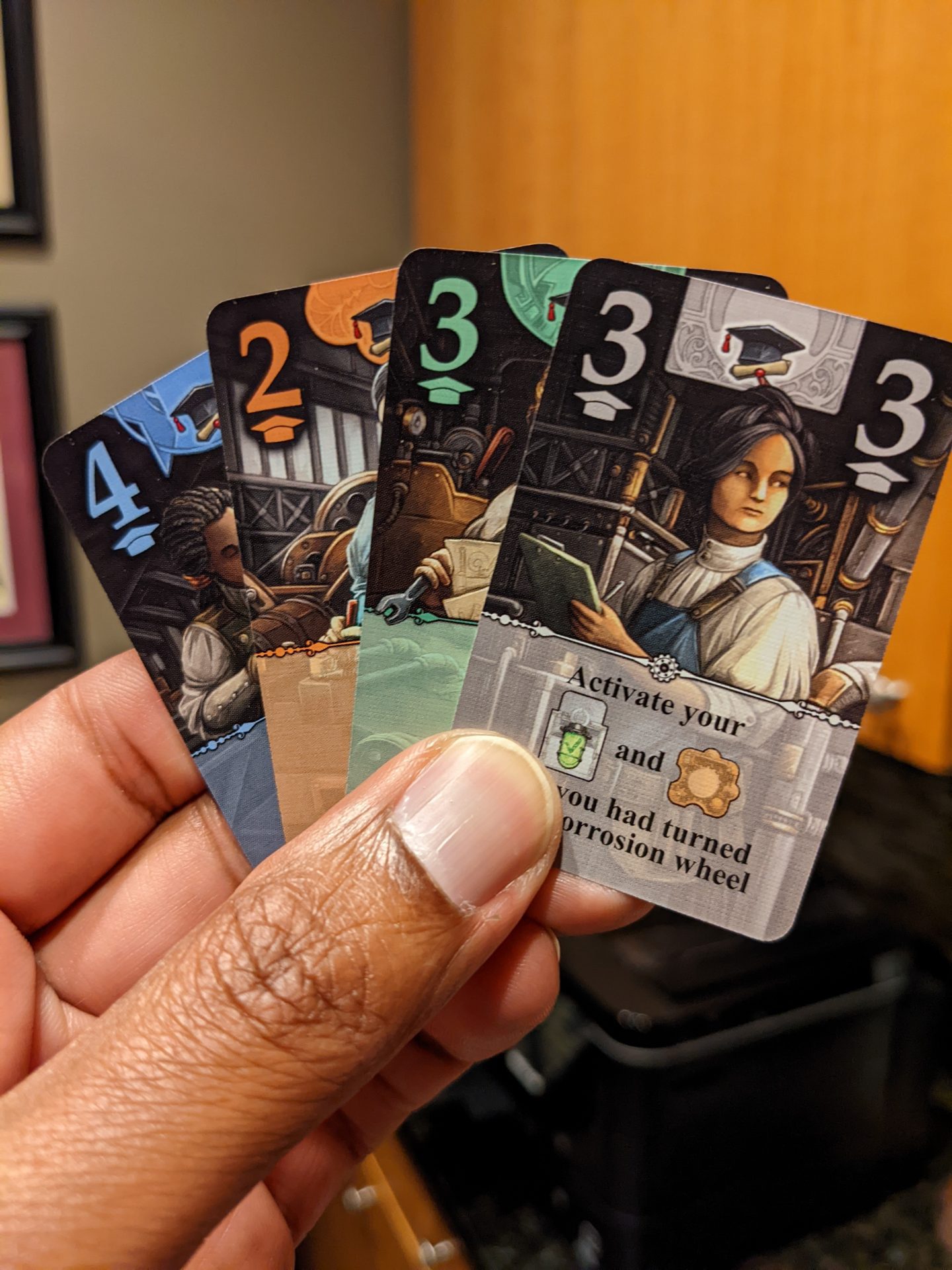
The Clock is Ticking, With Points
Here’s Corrosion in a nutshell: score the most points before a pool of special point tokens runs out.
After a reasonable time setting up the game, you’ll be staring at a few different components. A hand of 6 cards. A few point tokens, and a single chrome gear. Gears are currency in the game, so in addition to that starting chrome gear, you’ll have a couple of other gears (one small, one medium) to spend later.
You’ll also have a player board with steam tokens, some in the hot half of your boiler, some in the cold half. You’ll need to spend steam to take some actions, and to spin the corrosion wheel of your main board.
Corrosion is all about spinning the wheel. Tasked with making your big engine work—in this game, literally getting your engine going—you will have to figure out when to play cards to add things like turning machines, chrome machines, and one-shot machines to your tableau.
This turns everything into a race, one where everything doesn’t even have to be that efficient to win. Your starting hand of 6 cards lets you take all of the basic actions in the game: adding machines, gathering gears, adding steam, and taking better cards from a market available to all players.
You’ll definitely want better cards because of one of the game’s main action mechanics: following the actions of another player. When anyone else plays a card—each card has both a strength and a color suit—you can follow that action by playing a higher strength card in the same suit to do the same action as the active player. Efficiency!
There are some minor complications attached to the playing of cards. All engineers (cards) that are played get slotted into a space around your player board. They come back to your hand when the corrosion wheel’s X symbol arrives at the slot where the cards were played earlier.
You’ll also be adding your turning machines and one-shot machines (which give you a one-shot boost in powers, resources, or end-game award tiles) to give you more chances to get more stuff.
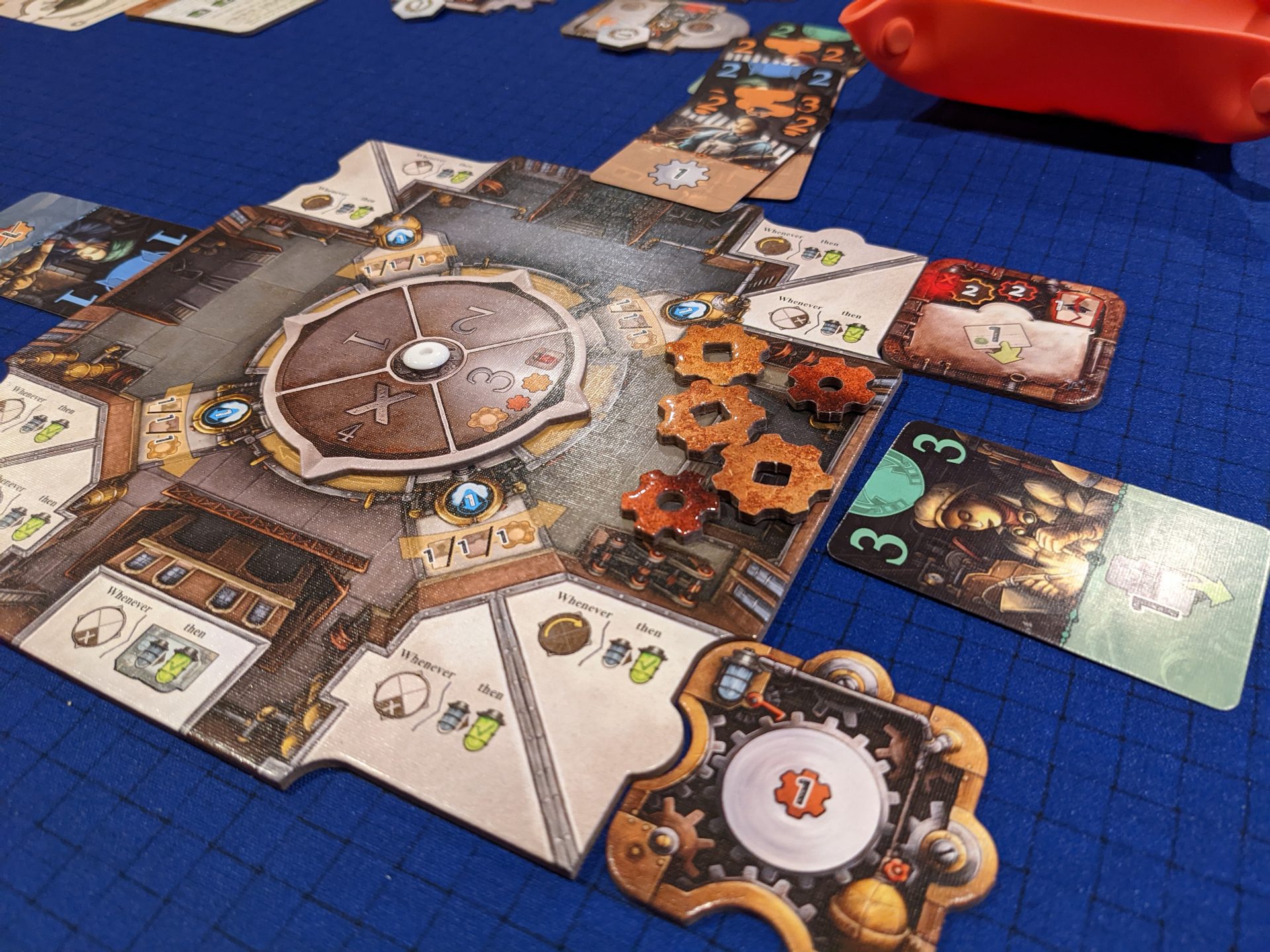
Be Patient, or Bring Less Friends
All the actions available in Corrosion, on their own, are interesting. They are NOT original, but they are interesting.
But they are significantly more interesting if you don’t play the game with 4 players.
Corrosion’s biggest flaw is its length. The game is way too long, even if you are trying to drive quickly to the finish line. At 4 players, this surfaces in a variety of ways: it takes too long to take your turn if you can’t follow other players. It feels like the clock—exhausting the special points taken whenever players snatch up the right-most chrome machine from the market on a turn, or nearly exhausting all the award/milestone tiles—is way off.
My 4-player game of Corrosion took a little over two hours. Too long, or too long without enough interesting things to do in the back half of the game. True, once you begin to add chrome machines to your player board (each with its own power if activated), some of your actions get a little more interesting.
Just not enough to justify sitting at the table longer.
There is not a lot of variety in the box, either. Everyone will snatch up the one-shot machines that grant the owner a chance to pick up an award tile, so those end up being very hot every game. Ditto for the one-shot machines that add water to your boiler; more water tokens are always good, and some of the award tiles reward you for having more hot water or total water tokens at the end of the game.
Instead of bringing friends for a 4-player game, you could do what I did instead: play the heck out of this game solo.
Save for the requirement that you’ll have to regularly reshuffle the automa deck for the AI to take its actions, Corrosion is a great solo play. Same puzzle, quick clock, nothing fiddly, you get to try out things that will still work in a multiplayer environment without the fuss.
Even the solo experience is a pain to set up and tear down, but that’s OK. When the game is on the table, you can do 2 quick games in under an hour. That’s when I began to really appreciate the puzzle and pulling off cool combos: when I did it alone!
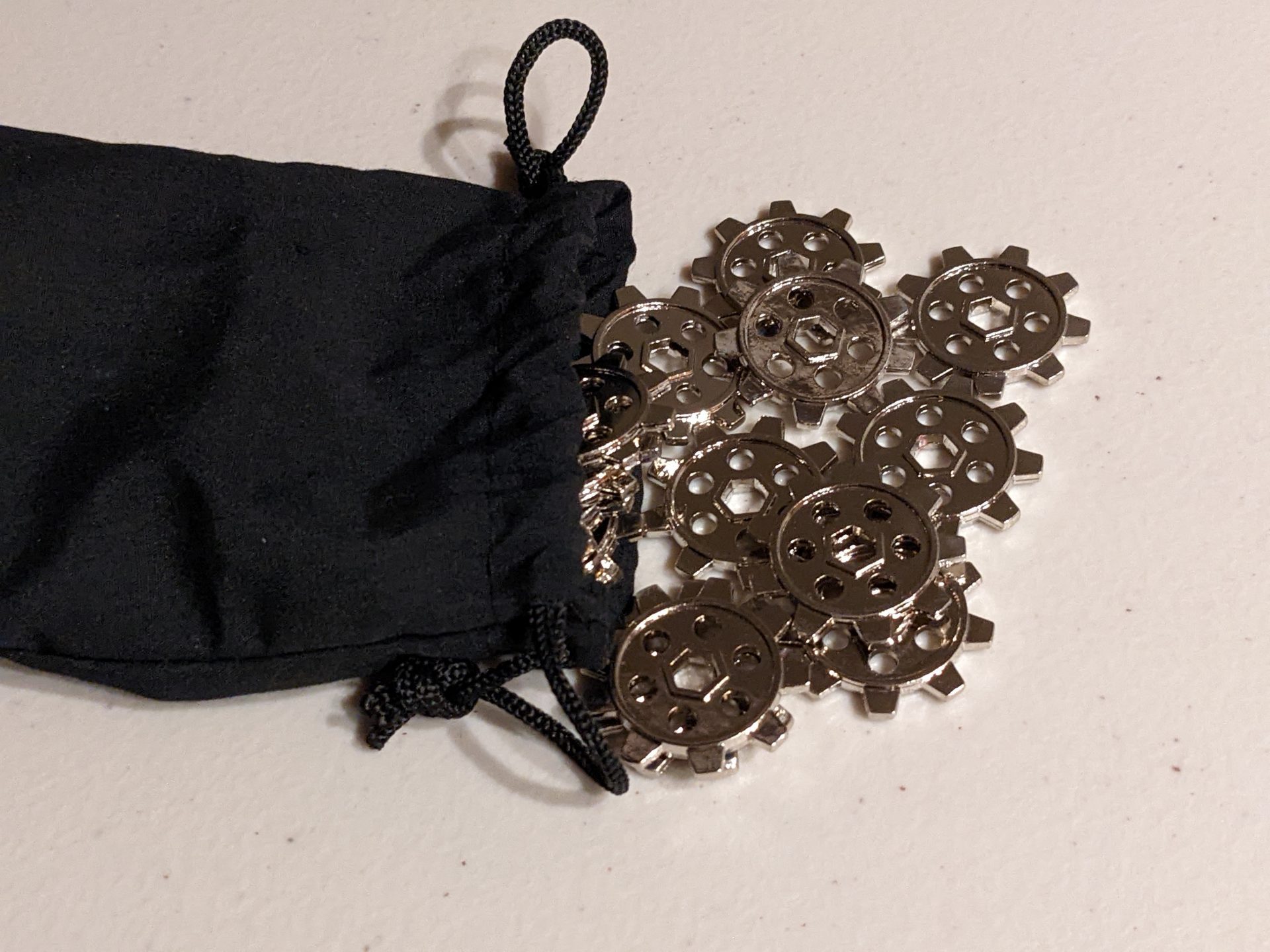
So, Where Does That Leave Us?
Corrosion has a core gameplay loop I really like: gather stuff, use it to buy better stuff, experience a few super-slick turns every game, race to score objectives before your neighbor can do the same thing.
It’s classic Euro fare, and while it doesn’t elevate the genre, it does make me happy. It makes me much happier when I don’t have to wait to take turns, so I could see this being a part of my collection for years as a solo or 2-player game to ensure downtime remains nearly non-existent.
The production here is fine, in the final analysis. I wish the art was better, and that things like the chrome machines did a better job of distinguishing some of their crucial details (which stack they should go in to begin the game, iconography, etc.).
The metal gear add-on pack is quite nice and makes for a handsome replacement of the game’s included cardboard chrome gears. Award tiles are chunky and the card stock is fine. But it’s not one of Capstone’s best productions, either.
I see now why the buzz never really picked up with Corrosion. I enjoy it, but I absolutely see why others thought it was just fine and could never exceed mediocrity. The theme never lands and it’s an average multiplayer experience that overstays its welcome.
I’ll play this one on my own!


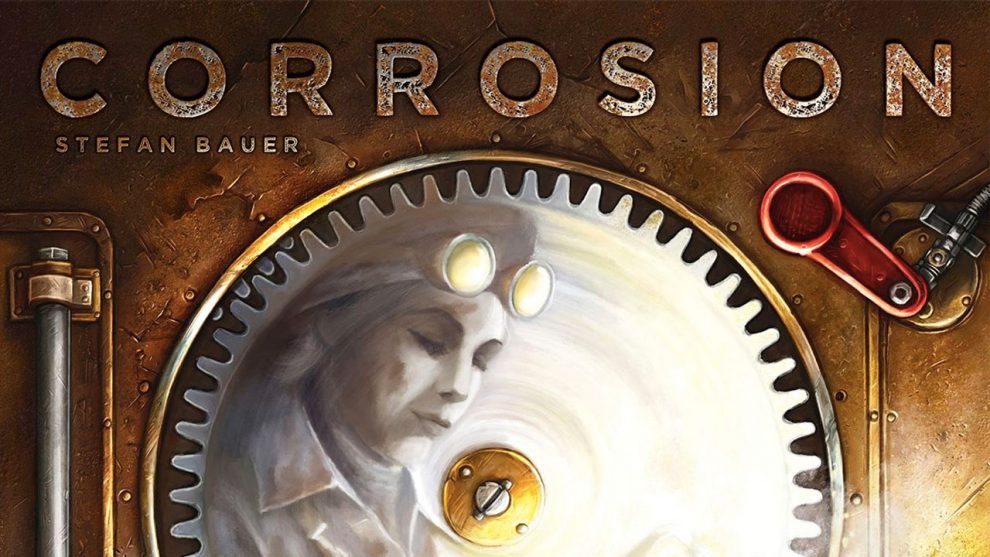



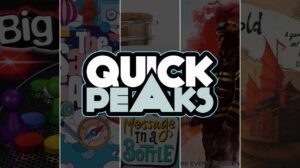
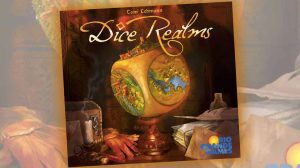




Add Comment